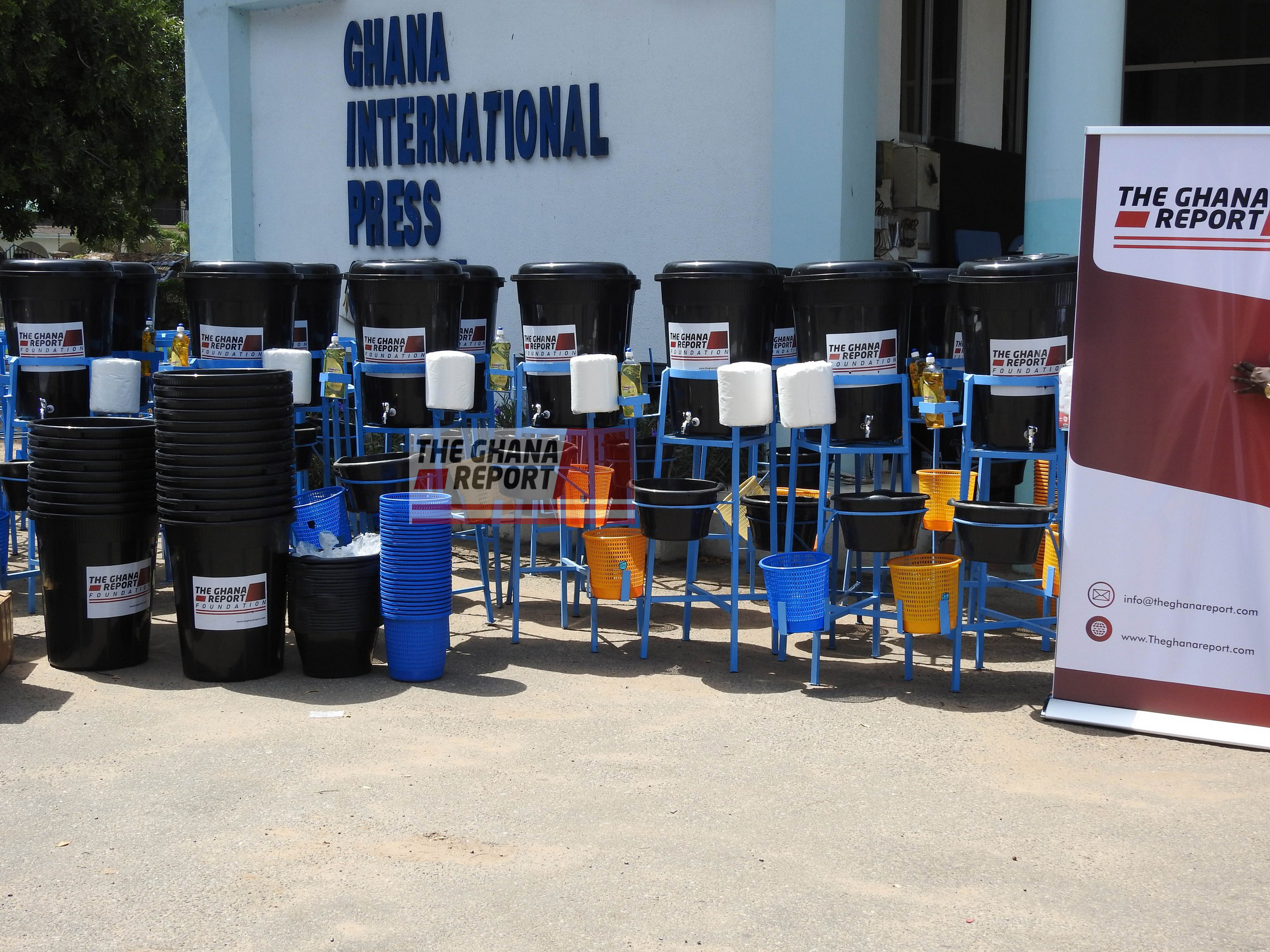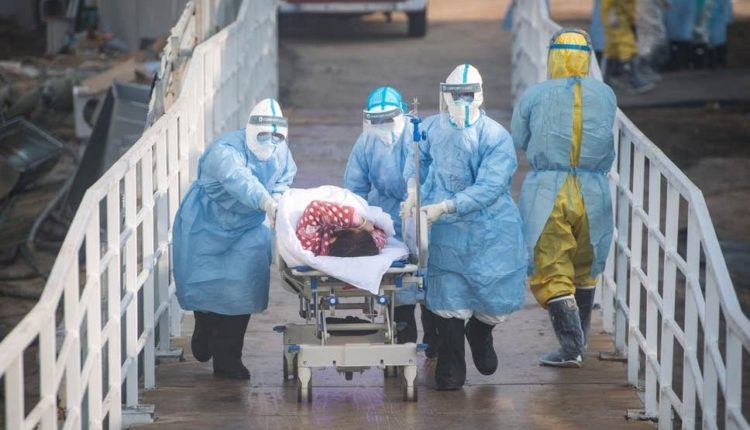Building a resilient Ghana for and after Covid-19
Cholera. Ebola. Bubonic Plague. Smallpox. And the Spanish Flu. They came at different times. And left in their wake destruction that makes it impossible for humanity to forget them.
Some were national, while some were continental in their scope. Others took the global stage and left behind painful memories. These epidemics and pandemics have altered the cause of history. But just when some of the deadly outcomes of their visits were being forgotten, the world was greeted with yet another pandemic that is yet to fully manifest its fatal scope.
This new pandemic that has spread through many countries at an alarming rate called 2019 New Coronavirus (Covid-19).
The Covid-19 outbreak was first noted in Wuhan in the Hubei province of China, in December 2019. The World Health Organization (WHO) declared it a Public Health Emergency of International Concern on January 30, 2020, and recognised it as a pandemic on March 11, 2020.
According to the WHO, Covid-19 is an infectious disease caused by a new virus. The disease causes respiratory illness like flu, with symptoms such as a cough, fever, and in more severe cases, difficulty in breathing. Coronavirus spreads primarily through contact with an infected person when they cough or sneeze. It also spreads when a person touches a surface or objects that have the virus on it and then touches his/her eyes, nose, or mouth.
The WHO is leading the global response against the outbreak and is raising funds to train and equip communities and healthcare workers to prevent, detect and treat Covid-19. The organisation is accelerating research and development of treatments and preventive vaccines.
In Africa, the virus has spread and is now in almost every country. Governments and health authorities in the continent are striving to reduce the vertical spread (across borders) and lateral spread (within communities).
As of April 26, 2020, the WHO recorded a total number of 2,915,368 confirmed cases in 193 countries worldwide, including Ghana, with 203,534 recorded deaths and 827,808 recoveries.
In Africa, COVID-19 has been recorded in 52 countries with 27,385 confirmed cases, 1,297 deaths and 8,172 recoveries. The Ghana Health Service (GHS) as at Sunday, April 26, 2020, recorded a total of 1,550 confirmed cases, with 155 recovered cases and 11 deaths.
Countries all over the world have taken similar and strict measures in the fight against Covid-19. These include; travel bans, shutting down of schools and other places of social gathering and closing of borders. Africa is the least affected continent. However, predictions have been made that cases in the continent might be more devastating. This is because many countries in Africa have weak health systems and facilities, poor sanitation, and insufficient supply of water in many communities.
In Ghana, the response is developing over time. The most notable measures are the mandatory tests of travellers who arrived in the country on March 21-22, 2020, restrictions on social gatherings, reduction in the number of passengers in public vehicles, enhanced contact tracing and testing as well as fumigation of market places. Ghana joined the ranks of countries around the world that are enforcing some form of restriction on movement with the hope of slowing down the spread of COVID-19.
The president mentioned on Sunday, April 19, 2020, in his address to the nation that Ghana had so far conducted 68,591 tests, which is the highest in Africa per one million of the population. A total of 1,042 people, that is 1.5%, had tested positive at the time. There was a partial lockdown in some parts of Greater Accra and Ashanti Regions for three weeks. However, the ban on the lockdown has been lifted. As at 26th April 2020, Greater Accra Region recorded the most confirmed cases with 1,347 persons, followed by the Ashanti Region, 69 cases; Eastern Region, 57 cases; Oti Region, 17 cases; Central Region, 17 cases; Northern Region, 13 cases; Volta Region, 10 cases; Upper West Region 8 cases; Upper East Region, 8 cases; North East Region, 2 cases; Western Region, 1 case, case and Western North Region, 1 case.
There are communities in the country with high levels of poverty. People in such communities are unable to buy basic sanitary items such as Veronica buckets, soap, disinfectants and hand sanitizers to ensure the protection of themselves and their families against the disease.

Some communities are also deprived of basic amenities like health institutions as well as health practitioners and potable water. This means the health delivery system is weak in many districts and communities especially, in rural communities. They are too weak to fight Covid-19 in most parts of the country.
It is clear that many people in the country still remain illiterates to the deadly disease. Because of the lack of knowledge on Covid-19 among Ghanaians, some communities have angrily resisted government’s decision to turn some facilities into isolation centres.
Many communities and slums in the county are heavily dense and filthy. The crowded nature of these areas makes it difficult for residents to obey the social distance rule. Crowded conditions in poor areas will lead to faster transmission of the disease.
It is clear that with such problems in the country, Ghana can easily be the epicentre of Covid-19 in Africa and the world at large. The government and Ghanaians must, therefore, take strict measures to curb the spread of the disease in the country.
The Director-General of the WHO, Dr Tedros Adhanom Ghebreyesus, has said: “Africa should prepare for the worst as the Coronavirus begins to spread locally.” Ghana is not exempted from this caution since many problems are yet to be solved as long as Covid-19 is concerned. Ghanaians should consider the following measures to control the spread of the disease in the country.
Firstly, the government and health authorities must continue to educate the public through their usual press releases by the Ministry of Information, the media and communal announcements to ensure that the public is deeply informed on the pandemic.
The government should also ensure an improvement in human and institutional capacities in the health sector. In order to achieve this, it should improve the knowledge and skills of all health workers across the country on Covid-19 and equip health institutions with the needed equipment to combat Covid-19. Masks, gloves, rubber boots, thermometers and test kits should be provided in their right quantities. In addition, isolation centres should be identified and accepted by communities to help limit the community spread of the virus.
Besides, the government, benevolent individuals and institutions should mobilise resources to support implementation personal hygiene and to acquire sanitary items like veronica buckets, soaps, hand-sanitizers and tissues. These items should be available at hospitals/health facilities, market places and other places of common interests including deprived communities. Thankfully, this is being done and should be encouraged to continue.
In addition, families and communities should adopt healthy measures like drinking enough water, consuming fruits and vegetables, having enough sleep in order to boost their immune systems. Young entrepreneurs who invent initiative tools like veronica buckets, nose masks and water pumps should be encouraged to produce more for Ghanaians at very affordable prices for every citizen.
Research centres should be resourced to continue to advance in their scientific study of the virus and contribute to global knowledge.
Finally, the government and security agents should ensure that laws concerning social distancing in the country must be obeyed. Families should be encouraged to take good care of the aged, very young and other family members with underlying health issues. They have weaker immune systems and are more vulnerable to Covid-19.
Controlling the alarming spread of the disease in the country will help save lives and resources. Everyone should ensure both personal and respiratory hygiene. Ghanaians should be encouraged to maintain social distancing and avoid shaking hands and hugging. The wearing of nose masks are highly recommended when stepping out of our homes to prevent inhaling the virus and touching our mouths and noses.
Comprehensive education must be given to the population in order to create awareness and sensitisation.
The push for the human race to prevent the pandemic has become the primary concern of world leaders. To ensure the success in curbing the spread of Covid-19, resources will be needed through donations both in cash and kind from benevolent individuals, and institutions including responsible allocation of resources by the government.
Ghanaians should not see Covid-19 as a punishment, but a challenge to fix our healthcare, sanitation, economic and other problems. This is the time to promote our teamwork as Ghanaians and protect our economy.
anaamlie56@gmail.com


